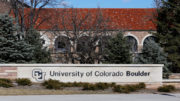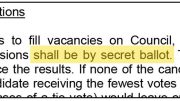By Jeffrey A. Roberts
CFOIC Executive Director
The Colorado Freedom of Information Coalition and other organizations are asking the state’s highest court to review an appellate court ruling that, if allowed to stand, will impact the First Amendment rights of lawyers to make statements about public-interest litigation.
In December, the Colorado Court of Appeals determined that Denver civil rights firm Killmer, Lane & Newman can be held liable for certain comments attorney Mari Newman made at a news conference about a federal class-action lawsuit filed on behalf of technicians working for a nail salon. The salon sued Newman for defamation after she alleged the workers had been forced to clean the business “for no pay whatsoever.”

“CFOIC believes the Court of Appeals’ ruling in this case chills litigation attorneys from discussing their cases with members of the press, for fear that doing so will create financial exposure,” says a motion filed Monday with the Colorado Supreme Court.
The ruling “dramatically” limits the rights of Coloradans “to receive informed and accurate information about legal claims being adjudicated in the courts,” the motion adds, noting that the First Amendment “protects not only the rights of speakers, but also of those who would receive the information they impart.”
CFOIC is one of eight groups asking to file a friend-of-the-court brief, prepared for the Colorado Trial Lawyers Association, that seeks a Supreme Court review of the Court of Appeals ruling in BKP, Inc. v. Killmer, Lane & Newman.
The amicus brief says the appellate court opinion, “opens an attorney up to unlimited third-party claims for acts and communications arising from her representation of a client, and undermines decades of law which developed to preserve the attorney’s function as a loyal and vigorous advocate.”
The litigation privilege protects a lawyer who publishes “defamatory matter” about another person or party in relation to a judicial proceeding, according to the Court of Appeals ruling. “But the privilege has limits,” the appellate judges wrote, concluding that “the statements made during the press conference and in the press release are not protected by the litigation privilege.”
The privilege does not apply in the nail salon case, the opinion says, because the attorneys had a “feasible way” of finding nail technicians who had an interest in participating in the lawsuit. But they “nevertheless broadly published the alleged defamatory communications to those having no interest in the case.”
Killmer Lane’s petition for certiorari argues that such a “novel exception” will apply to almost every class action, eviscerating the general rule protecting class action press outreach … The rule exists to let lawyers use press releases to reach, among others, potential clients, victims, and witnesses.”
The ruling also threatens the “pipeline of information” to the public, says the petition, co-authored by attorney Tom Kelley, a CFOIC board member and past president. “This is especially dangerous now, when news media often lack resources to discover and report on … important civil litigation. The right to bring that information to the attention of the media and the public is not only integral to, but is an essential component of, the right to seek justice from the courts.”
The other groups supporting the Colorado Trial Lawyers Association brief are: Civil Rights Education and Enforcement Center, Colorado Cross Disability Coalition, Colorado Center on Law and Policy, Colorado Plaintiff Employment Lawyers Association, Independence Institute, Colorado Broadcasters Association and Lawyers Civil Rights Coalition.
Follow the Colorado Freedom of Information Coalition on Twitter @CoFOIC. Like CFOIC’s Facebook page. Do you appreciate the information and resources provided by CFOIC? Please consider making a tax-deductible donation.




